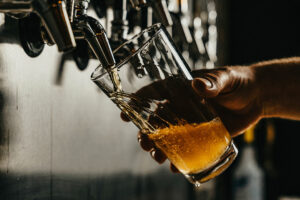
by Edg Adrian A. Eva, Reporter
The Philippine Standards Coalition (PSC), comprising leading alcohol producers, e-commerce platforms, and related industry associations, launched on Friday to commit to reducing harmful alcohol consumption in the country.
During the launch event, the coalition signed a pledge to promote responsible marketing and sales practices, bringing together members including Diageo, Pernod Ricard, Moët Hennessy, Brown-Forman, Bacardi, and the Philippine Association of Stores and Carinderia Owners (PASCO). Other members include Sugbo, Wine, Winery, Singlemalt, Booze Shop, and Flasked.
PSC is also supported by the Asia Pacific International Spirits and Wines Alliance (APISWA) and the Alcoholic Beverage Alliance of the Philippines (ABAPI).
“The Launch of the Philippines Standards Coalition demonstrates our industry’s commitment to addressing an important area of alcohol-related harm, which is the access to and consumption of alcohol by minors (below 18-years old),” Siau Xi Goh, APISWA representative said in a statement.
This campaign reinforces the Philippines’ commitment to reducing harmful alcohol use to 20% by 2030, in line with WHO’s Global Alcohol Action Plan 2022-2030.
For Philippine Senator Sherwin T. Gatchalian, the launch of the PSC is a major step in uniting stakeholders, the alcoholic beverage industry, sari-sari stores, and other key related industries to promote responsible retailing practices.
“Tackling harmful alcohol consumption requires collective action,” Mr. Gatchalian said in a video message.
Recognizing the key role played by sari-sari stores in alcohol distribution, the campaign focuses on educating store owners by training them on their legal and social responsibilities in preventing the sale of alcohol to vulnerable individuals, primarily minors, pregnant women, among others.
At the heart of the training, sari-sari store owners will learn about various legal requirements, including proper age verification, permits, and licensing for their stores, as well as the consequences of non-compliance. They will also learn about the effects of alcohol on health and the risks associated with its misuse.
As of October 25, over 200 sari-sari store owners from 13 cities in Metro Manila have successfully trained through this campaign. The 7,000 sari-sari store owner-members of PASCO are expected to follow suit in the training rollout.
Responsible selling of alcohol
Sari-sari stores, positioned at the final point of sale in the alcohol distribution chain, should promote responsible micro-retailing to prevent alcohol consumption among minors, PASCO said.
“Sari-sari stores are in the best position to implement responsible retailing practices… They can initiate immediate and continuous changes in drinking culture,” Joan Hipolito, Vice President of PASCO said during the launch event.
As of June, it was reported that over 27,400 deaths in the Philippines are associated with alcohol and its effects, including around 248 fatalities among individuals aged 15 to 19, according to a statement from the Sin Tax Coalition.
Given that sari-sari stores are deeply embedded within communities and significantly shape the local drinking culture as a go-to source for alcohol purchases, Ms. Hipolito emphasized that targeting these stores is essential for effectively controlling alcohol consumption among minors.
Responsible micro-retailing involves the “ethical sale of alcoholic beverages, ensuring compliance with regulations, and prioritizing community safety,” Ms. Hipolito said.
She also emphasized that sari-sari store owners are aware of their responsibilities as micro-retailers of alcohol; they simply need a catalyst to rekindle their motivation and take a more proactive stance in safeguarding their communities.
